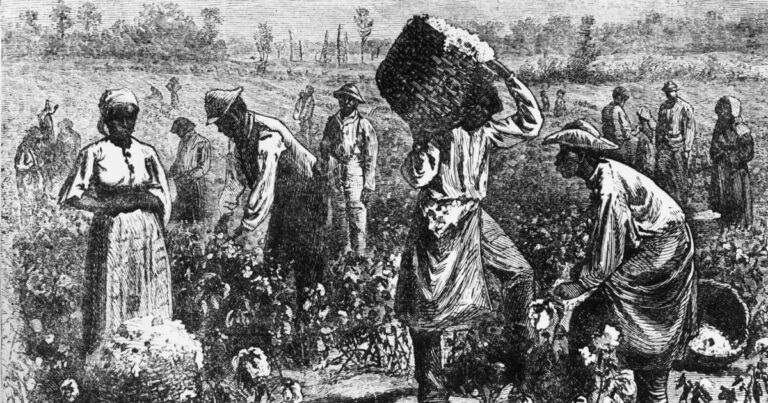Reevaluating Texas History: The Controversy Over Educational Narratives and Racial Legacy
Controversy Surrounding Texas Education BoardŌĆÖs Curriculum Revisions
In recent years, the Texas State Board of Education has sparked intense debate by proposing significant alterations to the stateŌĆÖs history curriculum. These changes have been criticized for downplaying the harsh realities of slavery and systemic racism that have shaped Texas. The revised curriculum tends to present a more polished and prideful version of history, focusing on state achievements while minimizing the darker chapters such as the Civil WarŌĆÖs causes and the Civil Rights MovementŌĆÖs struggles. Proponents argue that this approach fosters state pride and reduces divisiveness, but opponents contend it glosses over essential truths that are vital for understanding ongoing racial disparities.
A coalition of educators, historians, and civil rights advocates has voiced strong opposition, warning that the proposed curriculum adjustments would:
- Downplay slaveryŌĆÖs profound influence on TexasŌĆÖs social and political development.
- Limit coverage of racial violence, segregation, and discriminatory policies.
- Reframe the Civil WarŌĆÖs motivations and consequences in a way that obscures systemic injustice.
Recent surveys reveal public opinion is divided, with a majority of educators and students opposing the changes, while parents remain more evenly split:
| Demographic | Support Curriculum Changes | Oppose Curriculum Changes |
|---|---|---|
| Educators | 25% | 68% |
| Students | 32% | 59% |
| Parents | 44% | 50% |
Consequences of Altered Textbooks on StudentsŌĆÖ Historical Awareness
The recent textbook revisions in Texas have noticeably softened the depiction of slavery and racial discrimination, resulting in a less comprehensive understanding among students. The updated materials tend to emphasize TexasŌĆÖs economic growth and cultural pride, often at the expense of acknowledging the systemic racism that has persisted through generations. This shift has alarmed many educators and scholars who argue that omitting these critical elements risks fostering ignorance about the stateŌĆÖs true historical context and its ongoing social ramifications.
Notable modifications include:
- Reducing explicit descriptions of slaveryŌĆÖs brutality and its central role in TexasŌĆÖs economy.
- Excluding discussions on post-Civil War discriminatory practices such as redlining and segregation laws.
- Portraying racism as a historical anomaly rather than a continuing systemic challenge.
Studies comparing student knowledge before and after the curriculum changes highlight significant declines in understanding key historical issues:
| Knowledge Area | Before Revision | After Revision | Difference |
|---|---|---|---|
| Understanding slaveryŌĆÖs economic impact | 82% | 52% | ŌłÆ30% |
| Awareness of systemic racism today | 70% | 45% | ŌłÆ25% |
| Comprehension of segregation lawsŌĆÖ effects | 78% | 49% | ŌłÆ29% |
These findings underscore the risks of presenting a sanitized historical narrative, which may hinder studentsŌĆÖ ability to critically engage with issues of racial injustice and social equity.
Community and Scholarly Opposition to Historical Revisionism
Across Texas, a broad spectrum of voicesŌĆöincluding educators, historians, and community advocatesŌĆöhave expressed deep concern over legislative attempts to revise the stateŌĆÖs historical narrative. They argue that such efforts threaten to erase vital context needed to grasp the complexities of TexasŌĆÖs past and its persistent racial inequalities. Many community leaders stress that confronting historical realities is essential for fostering meaningful dialogue and social healing.
- Teachers warn: Sanitizing history undermines critical thinking skills and leaves students ill-equipped to understand racial injustice.
- Historians emphasize: Omitting uncomfortable facts distorts academic integrity and public knowledge.
- Activists caution: Ignoring these truths perpetuates systemic disparities and social fragmentation.
| Stakeholder | Primary Concern | Potential Impact |
|---|---|---|
| Educators | Restricted curriculum content | Misunderstood history among students |
| Historians | Inaccurate historical portrayal | Public misinformation |
| Community Leaders | Marginalization of minority voices | Ongoing social exclusion |
Recommendations for Inclusive and Honest Historical Education
Experts in history and civil rights advocacy stress the importance of embracing a transparent and inclusive approach to teaching Texas history. They argue that only by openly addressing the stateŌĆÖs full historical narrativeŌĆöincluding its painful chaptersŌĆöcan communities work toward reconciliation and social justice. The push to downplay these realities is viewed as a regressive step that risks erasing crucial lessons about resilience and inequality.
Key strategies proposed to improve historical education include:
- Incorporating diverse viewpoints: Elevating stories from marginalized communities to enrich the historical narrative.
- Facilitating community dialogues: Creating safe spaces for open conversations about history without censorship or fear.
- Reforming curricula: Ensuring educational materials present accurate, comprehensive accounts of slavery and racial discrimination.
| Strategy | Expected Benefits |
|---|---|
| Transparent Curriculum | Enhances critical thinking and historical accuracy |
| Inclusive Narratives | Builds empathy and cross-cultural understanding |
| Community Engagement | Promotes social healing and civic unity |
Conclusion: Navigating TexasŌĆÖs Historical Legacy and Future
As Texas continues to confront its multifaceted and often painful history, the debate over how that history is taught remains a pivotal issue. Attempts to obscure or soften the stateŌĆÖs legacy of slavery and systemic racism raise profound questions about collective memory, education, and the pursuit of racial equity. The resolution of these conflicts will not only shape TexasŌĆÖs educational policies but also reflect broader cultural and political transformations across the United States. How Texas chooses to remember and teach its past will significantly influence the social fabric and justice efforts for generations to come.




